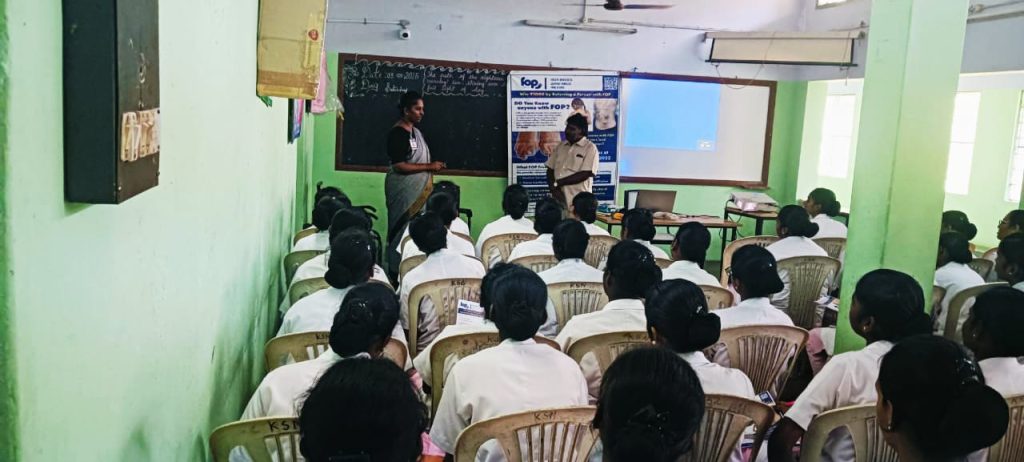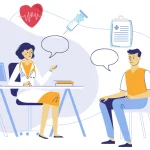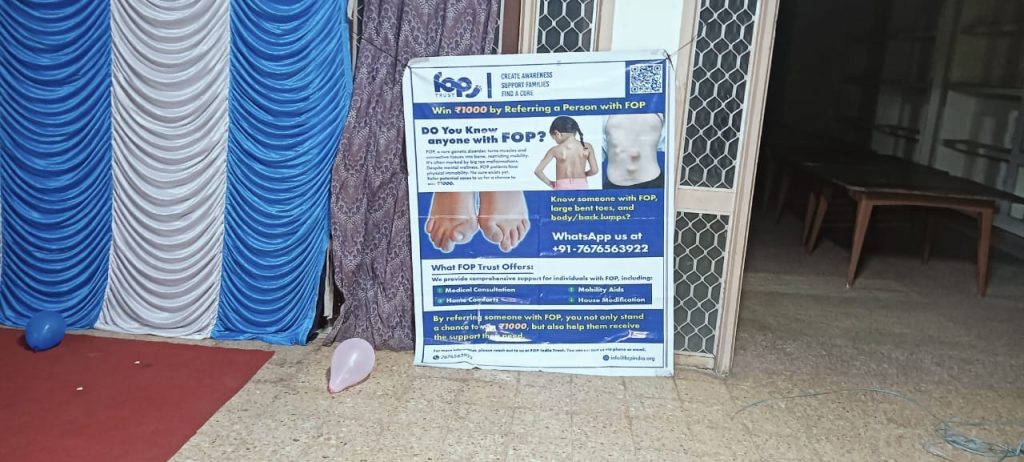
In a powerful step toward building early recognition of rare diseases in India, FOP Trust India conducted a special awareness session with nursing faculty and students, equipping the next generation of healthcare professionals to identify and respond to Fibrodysplasia Ossificans Progressiva (FOP) with knowledge and sensitivity.
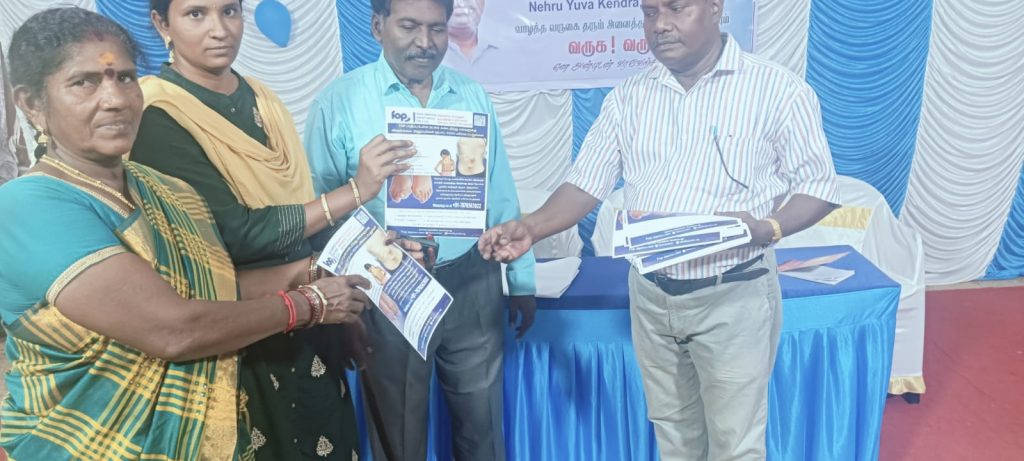
👩⚕️ Why Nurses Matter in Rare Disease Care
Nurses are often the first point of contact for patients in India’s healthcare system—especially in rural and underserved areas. Educating them about FOP, a condition that is often misdiagnosed or mistreated, can have a life-changing impact on early intervention and patient care.
During the session, students were introduced to:
- The clinical signs of FOP (such as malformed big toes and hard swellings on the back)
- The dangers of misdiagnosis and unnecessary surgeries
- Real-life case stories of Indian FOP patients
- The role of nurses in preventing trauma during flare-ups
📚 Engaging and Impactful
Held in a classroom setting with active participation, the students received visual materials, patient referral information, and WhatsApp contact details to reach out directly to FOP Trust. A referral reward initiative was also introduced—motivating communities to help identify undiagnosed cases and offer them support.
Posters and handouts were distributed, and students asked thoughtful questions, demonstrating a genuine eagerness to help patients affected by rare and often invisible conditions.
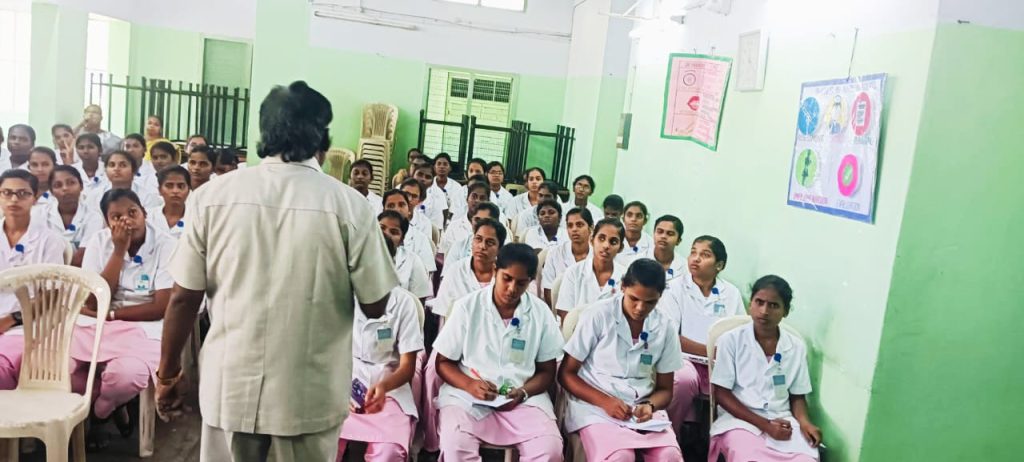
🩺 Building Awareness, One Campus at a Time
This is part of FOP Trust India’s larger campaign to educate healthcare workers, especially in tier-2 and tier-3 regions, where rare diseases often go unrecognized. Training sessions like this ensure that future nurses are not only informed but empowered to act with compassion and clinical confidence.
📢 How You Can Help
Know someone showing signs of FOP—like stiff joints, back lumps, or restricted movement after minor trauma?
📲 Reach us on WhatsApp: +91 76765 63922
🌐 Or visit: www.fopindia.org
Together, we can bridge the awareness gap and build a healthcare system where no rare disease patient goes unnoticed.
Stay tuned for more updates from our campus outreach programs across India.
